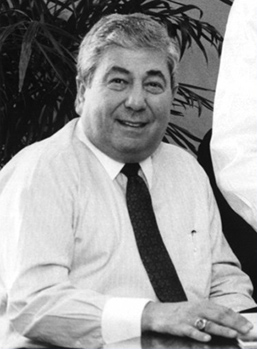
A broad recognition of a name within an industry speaks to the accomplishments of its holder. In medical advertising circles, the nickname “Win” could only refer to one person—Irwin C. Gerson. The positive, friendly connotations of the name also speaks to characteristics and the career of the man it represents. It takes time for an appellation to take hold and Gerson has put in the time—over 40 years in Rx marketing. It also has to resonate with a person and Gerson has decidedly been a “winner.”
Gerson graduated from the Fordham University School of Pharmacy (influenced in his career choice by his father’s ownership of a drugstore). After service in the Army in California, he returned to the East in 1953, eventually taking a job with Wyeth as a sales representative. While in the field, he obtained an MBA, but finding detailing limiting, answered a blind ad and was hired at William Douglas McAdams in 1958. He remained with the agency for the rest of his career.
Beginning in the market research department he moved up quickly as his tranquilizer experience with Wyeth’s Equanil proved useful to the agency’s introduction of Roche’s Librium. He quickly advanced at McAdams, taking over the Roche account in 1961, and becoming General Manager in 1970, Executive Vice President in 1972, President in 1974, and Chairman in 1987. Over all, Win spent 26 years at McAdams in a chief executive capacity, a position from which he projected his ideas and personality throughout the industry.
The McAdams agency was dominated for much of its history by Arthur M. Sackler, MD. Dr. Sackler, who from the time he became the principal owner in 1942 until his death in 1987, played a central role in its direction. He was larger than life—clinical researcher, advertising and Rx marketing innovator, publisher, art collector, connoisseur, and philanthropist. Gerson’s relationship with him greatly shaped his success at McAdams.
Win recalled their first meeting in his early days at the agency in an MM&M interview: “He invited me to a meeting on tranquilizer marketing and discussed physicians’ reactions to certain approaches with me. He liked me and respected my knowledge of the business.”
A long-time Gerson associate says, “As Win grew in the business, developed professionally, and gained more experience, he became more of a confidant of Arthur’s and they worked very, very closely together. He and Arthur almost had a father and son relationship. And I think that it helped the agency because when Arthur passed on, Win was so closely associated with Arthur that it was almost assumed that he would be the natural inheritor of that position.”
Many at the agency (now Lowe Healthcare) consider Gerson’s holding the organization together after Sackler’s death, working with clients, employees, and the Sackler family, to be Win’s “finest hour.” However, Gerson’s accomplishments go well beyond this crisis period.
His pharmacy background and his long promotional experience equipped him to formulate effective marketing strategies for innumerable products. Drawing on this knowledge, he led his agency through the introduction of dozens of successful Rx brands, among them Valium, the first $100 million pharmaceutical. He was extremely active with industry trade groups, influencing their positions on government regulations and working with the regulators to help them understand the positive role advertising and promotion plays in healthcare communications. In this role, he was a spokesperson for the value to the physician of the industry’s professional and consumer educational programs.
But overall, Win will be best remembered for the kind of a person he is—a patient listener before giving opinions, a leader who’s receptive to new ideas (managed care programs, DTC, and the Internet), a superb salesperson with formidable “meeting skills,” and an executive of perceptive political instincts. He is also known for his sense of humor and for, as one colleague tells it, “his ability to see through the nonsense on a day-to-day level…to calm people down…to put things in perspective.”
Lastly, those who know him sensed that Win was one of those fortunate few who loved what they did. He was completely in tune with pharmaceutical advertising. He delighted in his work and his attitude radiated an aura of good feeling around him. While Gerson retired at the end of 1998, his automobile license plate still reads “RX ADMAN.”